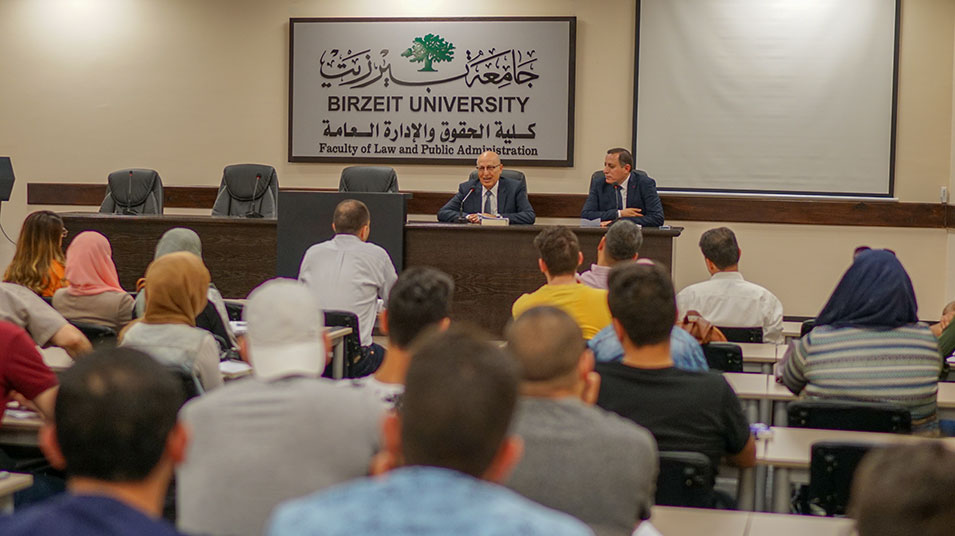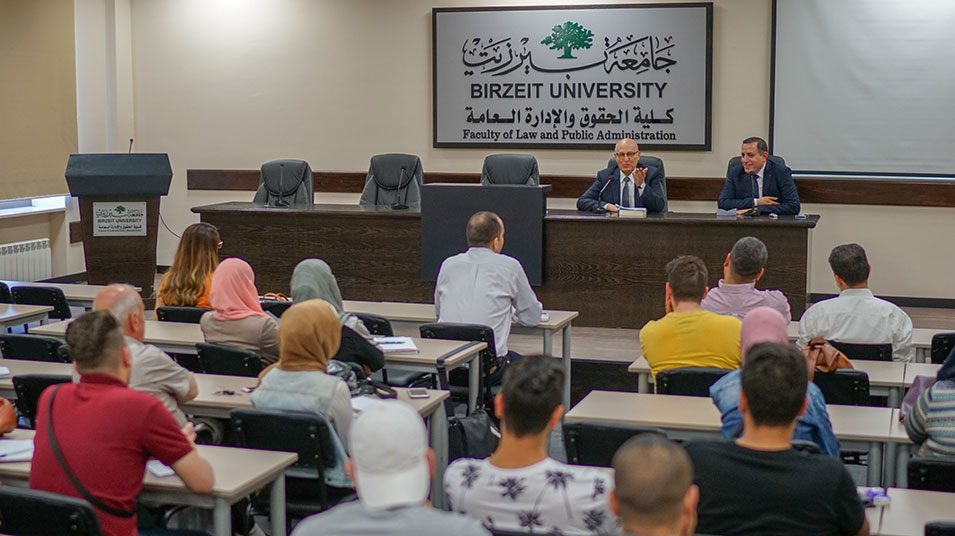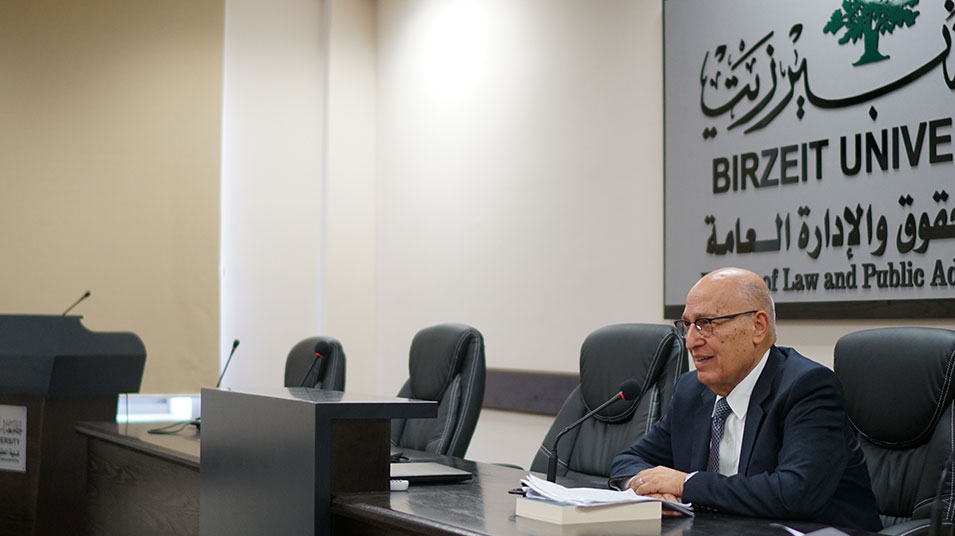Nabil Shaath, key architect of Arafat’s 1974 UN speech, discusses address impact
Nabil Shaath, the Palestinian president’s foreign policy advisor, gave a lecture on the background and impact of the late Palestinian president Yasser Arafat’s 1974 United National General Assembly speech in a lecture organized by the Department of Political Science in the Faculty of Law and Public Administration on Thursday, May 16, 2019.
In the lecture, Shaath discussed how the plan for a UN speech by Arafat was created at a time when the spirit of liberation that had permeated the world after the end of the Second World War clashed with the defeat of the Arab armies in the 1973 war, and how those two events helped shape the outlines of speech.
The speech, Shaath noted, had two main goals: to cement the Palestine Liberation Organization’s role as the legitimate representative of Palestinians, and to focus attention in the UN General Assembly on the Palestinian quest for independence.
“President Arafat’s speech in the United Nations was prepared against a backdrop of a changing world,” said Shaath. “And now, nearly 45 years later, we are also facing a changing, multipolar world in which peace and stability will permeate the Arab world.”
Shaath also explained the political maneuvering that his team and the Arab allies had to implement to get the 105 votes required to have Arafat present a speech in the general assembly, noting that the team made use of political and economic relationships with Palestine and other Arab countries to persuade the member countries of voting in favor of the motion.
A first draft of the speech, which as Shaath explained centered around the idea of a democratic Palestinian state and the right of return, was penned by Shaath and presented to a committee of Palestinian politicians, thinkers, and intellectuals who revised it until they were satisfied that it had properly conveyed the Palestinian people’s hopes and dreams.









